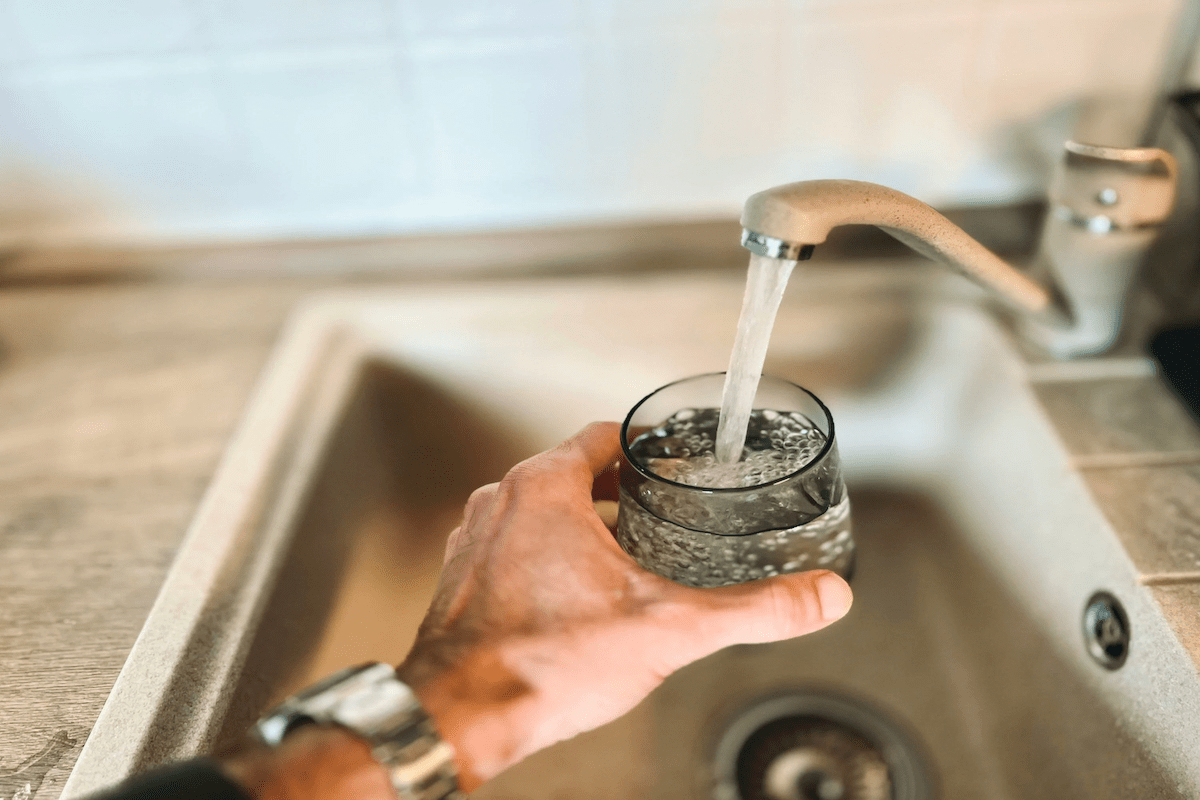When people start looking into home water filtration, one question comes up again and again: “Is reverse osmosis water actually healthy?

It’s a fair question. A reverse osmosis water filter removes so many impurities that some folks wonder if it might also take away the “good stuff.” The internet is full of half-truths, so let’s clear things up with facts, not myths.
What a Reverse Osmosis Water Filter Actually Does
A reverse osmosis (RO) system is a multi-stage filter that pushes tap water through a semi-permeable membrane. This membrane is fine enough to block contaminants as small as 0.0001 microns.
We’re talking about removing:
- Heavy metals like lead, mercury, and arsenic
-
PFAS (the so-called “forever chemicals”)
-
Chlorine and chloramine
-
Pesticides and herbicides
-
Nitrates, sulfates, and dissolved salts
-
Many bacteria and viruses
If you think about what’s not in your water after that process, it’s easy to understand why RO water is among the cleanest you can get at home.
The Mineral Question
Here’s where confusion usually starts: yes, a reverse osmosis water filter removes most dissolved minerals—things like calcium and magnesium—along with contaminants.
Some people assume that makes the water “unhealthy.” But here’s the reality:
-
We get the vast majority of our minerals from food, not water. Even mineral-rich spring water contains small amounts compared to what you eat in a single meal.
-
Many tap water minerals aren’t in their most absorbable form anyway. Just because calcium is in your water doesn’t mean your body uses it effectively.
Many RO systems, including high-end models, provide an optional remineralization stage if you still prefer minerals in your drinking water. This restores healthy minerals for dietary preference and taste.
Why RO Water Is a Healthy Choice
1. Keeps the Bad Stuff Out, Day After Day
Most people don’t think about what’s in their tap water—at least not until something goes wrong. But the reality is, a lot of those invisible contaminants (lead, PFAS, arsenic) can quietly build up in your body over years. An RO system takes those out before they even have a chance. And if you’ve got little ones running around, or someone in the family with a health condition, that extra layer of safety can feel like a big weight off your shoulders.
2. A Safer Bet for People Who Need It Most
Not everyone can just “roll the dice” with water quality. Babies, expecting moms, folks with compromised immune systems—they need water that’s not going to surprise them. RO systems give you that kind of reliability. No guessing. No wondering what’s in the glass. Just clean water you can actually trust.
3. Less Chemical Smell (and Taste)
If your water smells faintly like a swimming pool, you can thank chlorine. It’s there to kill bacteria on the way to your tap, which is good… but it can also leave an aftertaste that’s not so pleasant. Sometimes, it even reacts with other stuff in the water to create byproducts you’d rather avoid. An RO filter clears all that out, leaving water that actually tastes like—well—water.
4. You’ll Probably Drink More Water Without Thinking About It
Here’s the thing: when water tastes better, you drink more of it. And that’s good for your skin, your energy, your digestion—you name it. A lot of people I’ve talked to said that once they switched to RO water, they found themselves skipping soda without even trying. It’s not magic; it just tastes better.
A Few Myths That Need Clearing Up
“RO water removes healthy minerals—so it’s bad for you.”
Technically, yes, it removes minerals. But here’s the catch—water isn’t where you get the bulk of your minerals anyway. That’s what food is for. Your broccoli, almonds, and leafy greens have you covered. RO just makes sure you’re not getting an unwanted side of lead or pesticides with your drink.
“It’s too pure to be safe.”
I’ve heard this one a lot, and it’s just not backed by science. Purified water doesn’t somehow hurt you because it’s clean. Millions of people drink it daily without issue. If anything, it’s nice knowing you’re not swallowing a mystery cocktail of stuff from your pipes.
“Bottled water is basically the same.”
Sometimes it is—if it’s labeled as purified or reverse osmosis. But a lot of bottled water is literally just tap water in plastic. Plus, it could’ve been sitting in that bottle for months. An RO system gives you fresh water instantly, without the plastic waste.
Little Everyday Perks You Don’t Always Hear About
-
Better tasting coffee and tea – If you’re a coffee person, RO water can make your morning cup noticeably smoother.
-
No more lugging bottled water – Your back will thank you.
-
Less plastic waste – Good for you, good for the planet.
-
Peace of mind – You just stop thinking about it after a while, because you know it’s handled.
Bottom Line
A reverse osmosis water filter isn’t just about what it takes out—it’s about how it changes your daily life. Cleaner water, better taste, fewer trips to the store, and a whole lot less second-guessing about what’s in your glass.
If you drink water every single day (and you do), it’s one of the simplest upgrades you can make—and one you’ll notice right away.





